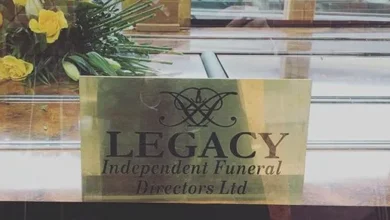How is the funeral industry likely to be impacted by Brexit?

As Britain heads towards Brexit, it is certain that no industry is going to emerge unscathed from this radical divergence with our current economic path. In the best case scenario, a ‘soft’ Brexit will allow continued free movement of goods, services, people and capital. If we end up with a ‘hard’ or no-deal Brexit, Britain will be forced to deal with Europe as the island we are, without any free trade agreements.
As a service industry, the direct implications on the funeral sector will far-reaching, whatever type of Brexit we are dealt. It is now certain that the overall economy is going to suffer, and within that we should expect higher levels of unemployment, reduced productivity, and widespread supply chain disruption.
Here are some of the key areas for businesses to watch and, where possible, prepare for.
Reduced turnover
Perhaps the greatest issue for the funeral sector will the knock-on effects of a weakened economy. While funeral services have traditionally benefited from a cultural taboo around cutting costs for deceased loved ones, there is evidence to suggest that is changing. Online price cutting is starting to normalise bargain hunting within an industry which has largely avoided it, and as Brexit deepens this will increase.
Competitive pricing and savvy marketing will be crucial as the landscape changes. With economists suggesting recession will be hard to avoid post Brexit, businesses should prepare for lean times.
Changing legislation
Recent changes in EU law will formalise exposure limits to formaldehyde in embalming fluid. If Britain will remains in the EU single market for 21 months after it officially leaves on 29 March, we should expect it to transpose into UK law, although this won’t happen for up to five years.
Either way this is going to have a huge impact on the industry, with no obvious alternative currently in existence. Legal uncertainty over this and potentially many other products will persist until at least 2021, and likely beyond.
Remember, changing trade rules are going to add tariffs so for many goods will see price hikes as a result. Business owners should investigate their current pricing structures to see whether space exists for increased costs.
Repatriation
One of the common tasks of funeral directors is collecting a body that has been repatriated from abroad. Once Britain leaves the EU these bodies will need customs clearance, which will certainly increase processing times and could delay burials. This goes for both air and road transportation methods.
One possible advantage to this exit from the customs union may come if VAT is no longer added to repatriation costs. This would lower the end cost to the deceased’s family.
Supply chain
It would be easy to suppose that as UK businesses with principally UK customers, the funeral industry should be in a fairly robust position when it comes to Brexit. However, since the free flow of almost everything on the island depends on the functioning of the supply chain, it is certain that everyone will experience the effects. All businesses should take care to investigate their own supply chains, understand how key products are distributed, and then model the impacts should that be disrupted.
Be prepared to switch suppliers if necessary, use alternative products, and renegotiate contracts.
Employing EU citizens
If they are already living and working in the UK, it is likely you should be able to continue employing people from the EU. They will need to apply for ‘settled’ status, giving them an indefinite right to remain.
Employing EU workers without this paperwork is going to become significantly more difficult post Brexit, although there will be still be a means of employing ‘skilled’ workers where it can be demonstrated.
Conclusions
There’s no doubt that planning breeds resilience and this is something prudent businesses are already doing by creating detailed contingency plans for whatever type of Brexit arrives. Put simply, Brexit is going to require that we all become better business people, with a greater understanding of our marketplace and how to reach them. To quote Benjamin Franklin: “Fail to prepare, you prepare to fail.”
Mike Smith is a director of Companydebt.com, and an insolvency expert of 40 years. He has a particular interest in business resilience
This feature was first published in the January issue of Funeral Service Times







